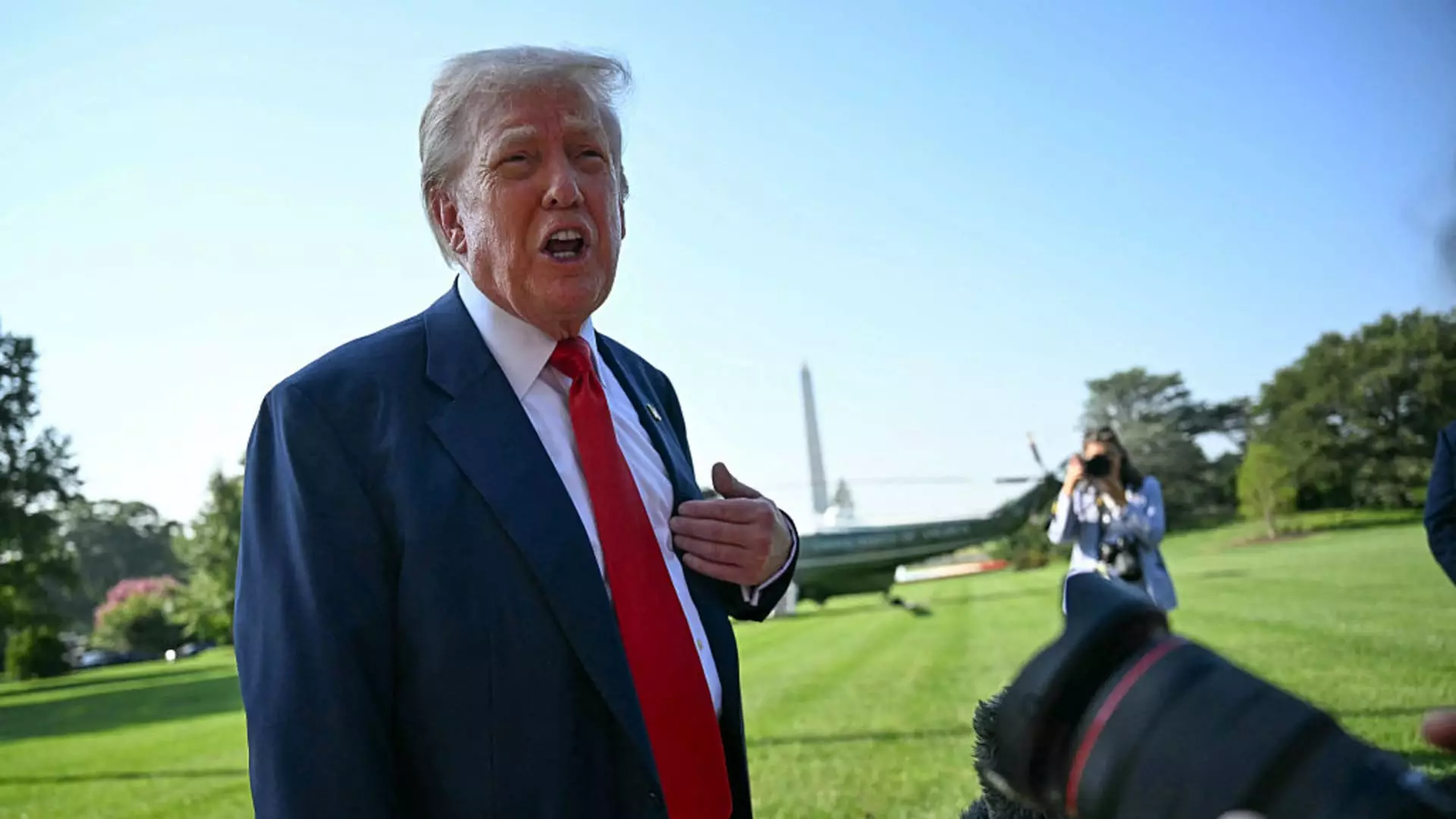In the tangled web of American political discourse, no figure remains untouched by the shadows cast by scandal and suspicion. Donald Trump’s recent comments about Jeffrey Epstein exemplify the troubling tendency to mask deeper connections behind layers of denial and deflection. His insistence on disassociating from Epstein, coupled with the suggestion to focus on others—Clinton, Harvard figures, hedge fund elites—reveals more about the politics of distraction than about accountability. This rhetorical strategy, commonplace among those in power, seeks to diffuse tension by redirecting scrutiny toward perceived “culprits” less politically inconvenient.
However, this tactic overlooks the interconnectedness of these social circles. Epstein’s allure was not limited to a single individual but was a nexus of influence that spanned business, politics, and academia. By attempting to dismiss personal connections or minimize involvement, figures like Trump are merely perpetuating an illusion—one that obfuscates the uncomfortable reality that the elite often operate within a culture of complicity. The question of whether Trump, Clinton, or Harvard’s ex-presidents had knowledge or involvement is far more than idle speculation; it is a mirror reflecting our collective failure to hold power structures accountable.
Justice Deferred and the Power of Secrecy
The withholding of evidence by the Department of Justice further intensifies the suspicion surrounding Epstein’s case. For years, the promise of transparency was broken—the DOJ’s recent retreat from releasing grand jury transcripts echoes a pattern of secrecy that shields those at the top. This opacity is not merely bureaucratic caution; it signals a deliberate strategy to protect the powerful from exposure.
Trump’s own engagement—such as ordering the unsealing of documents related to Maxwell—suggests a concession to public pressure and a recognition that transparency might threaten entrenched interests. Yet, the persistence of efforts to conceal evidence highlights the enduring influence of a legal and political establishment more committed to protecting the status quo than to justice. It calls into question whether any meaningful reckoning is possible in a system where powerful figures like Maxwell are kept under tight control, and where the truth is often sacrificed on the altar of political convenience.
The Human Cost of the Culture of Silence
Ghislaine Maxwell’s court proceedings underscore the personal torment inflicted by a clandestine network of abuse and silence. Her lawyer’s portrayal of her as a scapegoat and victim of unfair treatment reveals the emotional and moral dilemmas faced when confronting systemic abuse. Defenders argue that Maxwell’s conditions are inhumane, painting her as a victim of malicious speculation and institutional neglect.
Yet, this narrative risks trivializing the suffering of the victims—the young girls who endured unimaginable trauma—and potentially absolving an entire socio-political system that enables such abuse to persist. The allure of characterizing Maxwell as a persecuted figure is a familiar tactic to divert attention from the broader implications: the complicity of society’s power brokers and the entrenched culture of silence that allows exploitation to thrive. Justice, in such cases, demands not only uncovering facts but a collective reckoning with the system that permits abuse to flourish under the guise of privilege.
Power, Accountability, and the Future of Justice
The dynamics surrounding Epstein, Maxwell, and high-profile figures like Trump serve as a stark reminder of how easily the veneer of civility veils systemic corruption. It exemplifies the challenge of establishing genuine accountability in a system where influence and secrecy intertwine. While political figures often use scandals to rally their base or distract from other issues, the deeper truth remains: justice is compromised when those in power manipulate information and shield allies.
A true liberal center would advocate for a system that prioritizes transparency, resilience against influence-peddling, and unwavering support for victims. This requires an unwavering commitment to exposing uncomfortable truths, even when it implicates those with immense power. In the end, the scandal is not merely about Epstein or Maxwell; it is about the foundational integrity of our institutions and whether society is willing to confront the dark realities lurking beneath the surface of influence and privilege.



Leave a Reply